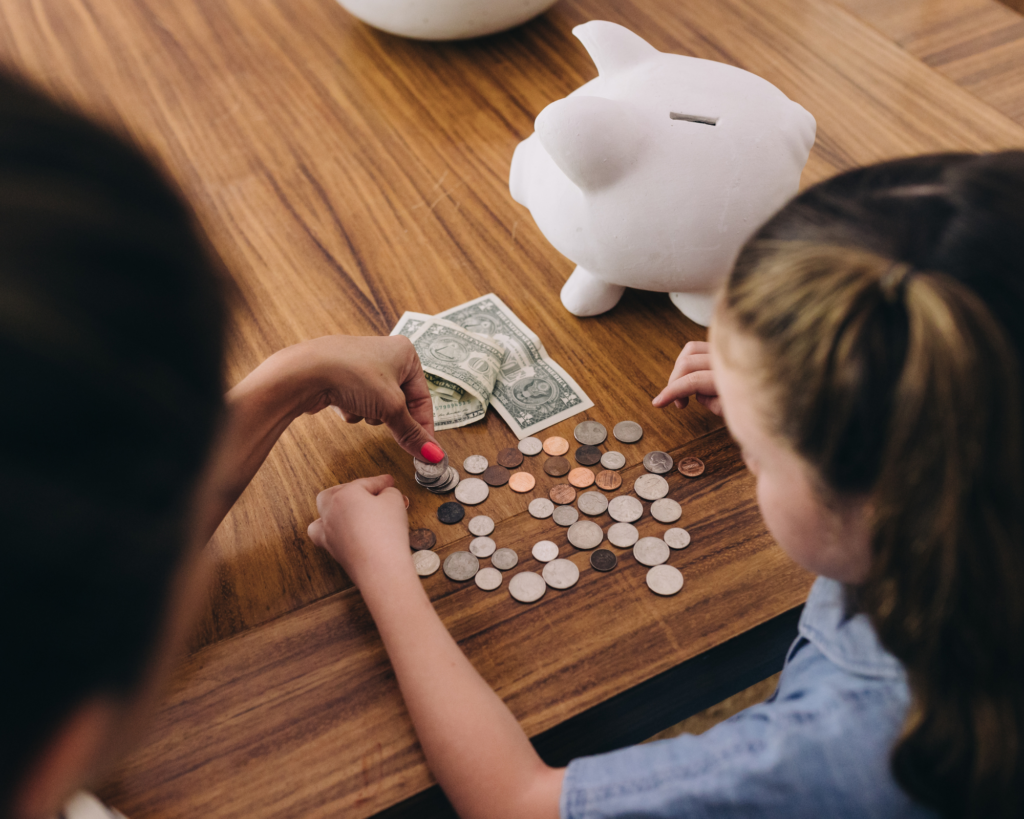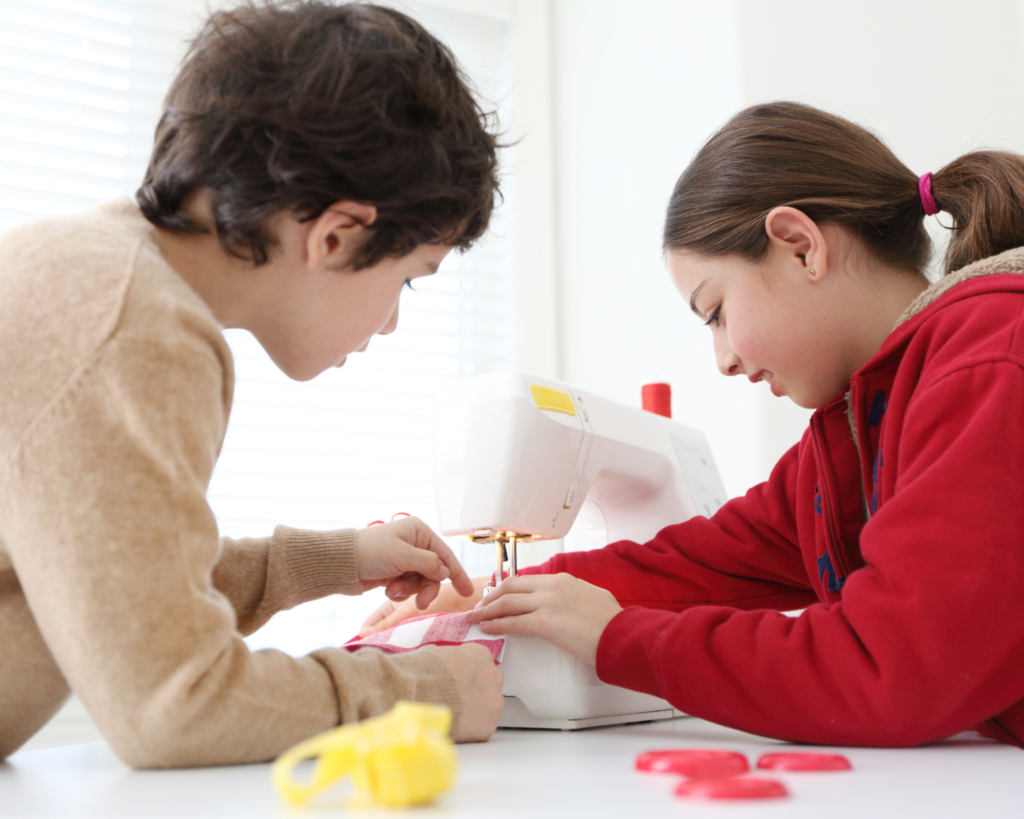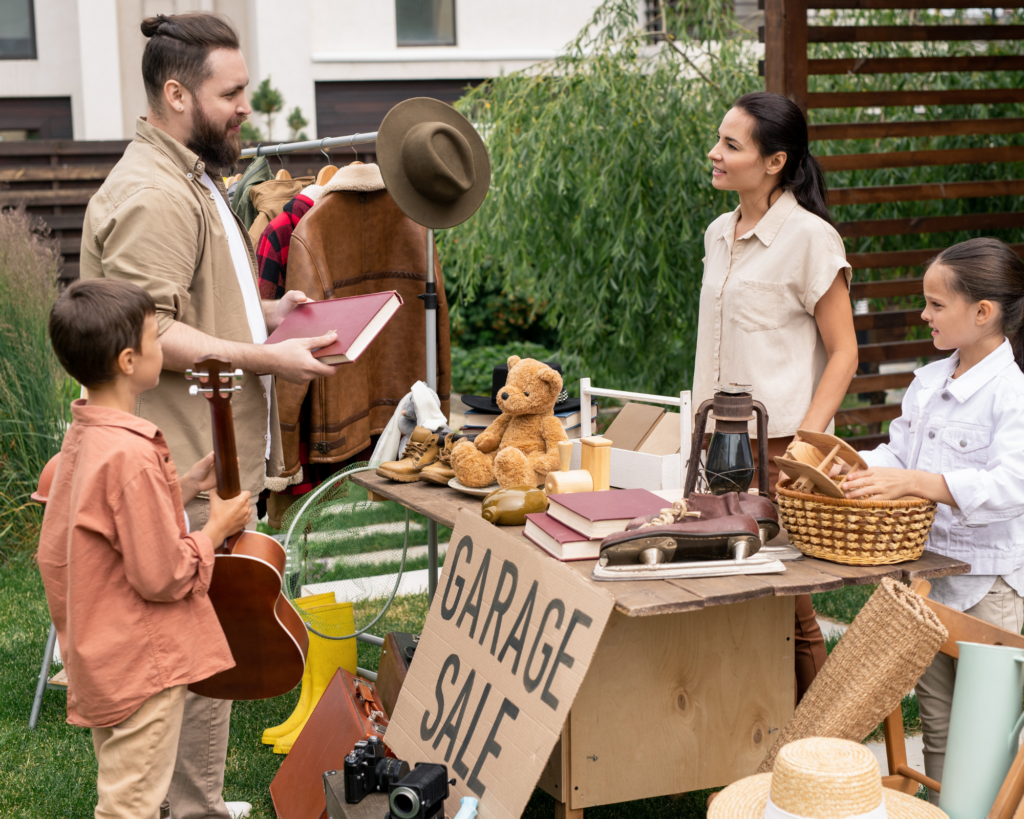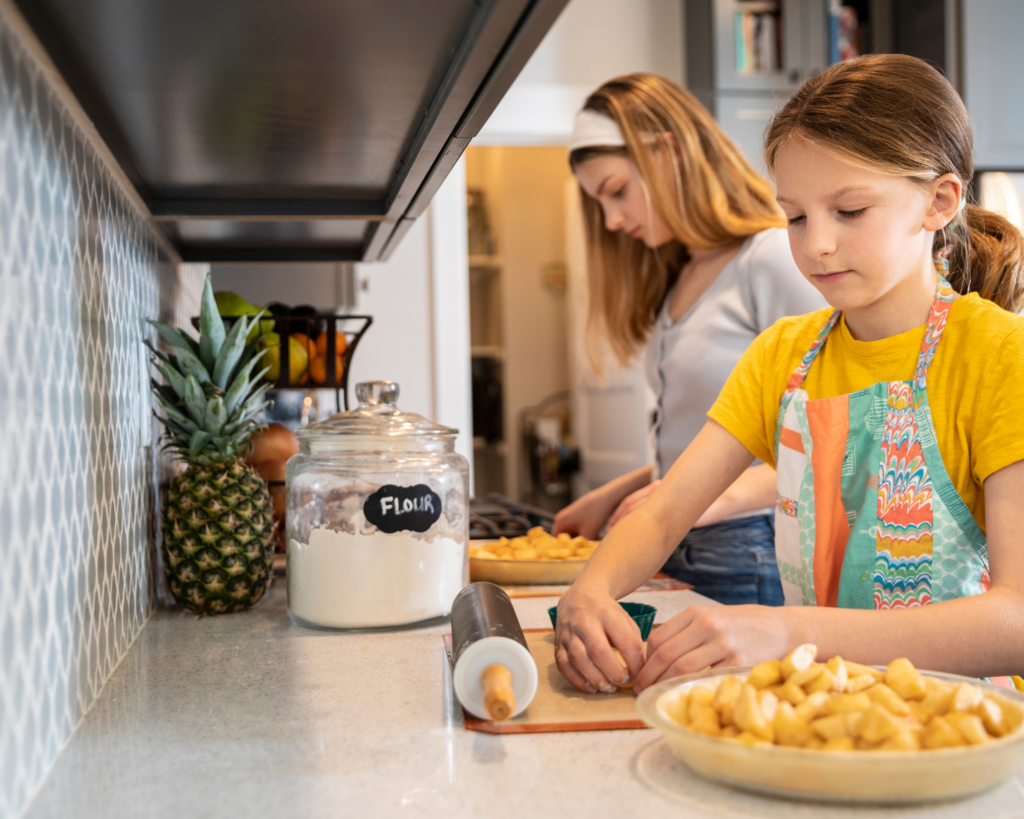Raise Money-Smart Kids: 19 Frugal Habits They Need to Know!
As parents, we want to raise financially responsible and independent children, mindful of their spending and savings habits. Teaching children the value of money and how to be frugal can help them develop lifelong money management skills. Practicing frugal habits to teach your kids is good for the entire family.
Let’s discuss 19 practical ways to teach your kids to be frugal, including setting a good example, involving them in budgeting, encouraging savings, prioritizing needs over wants, and more.
These strategies will help your kids learn to live within their means and instill a sense of responsibility and confidence in their financial decision-making abilities.
Create A Budget
Teaching kids to create a budget is an essential life skill to help them develop responsible money management habits.
To start, encourage your kids to write down their income and expenses, such as allowance or earnings from chores, and any spending they typically do, such as buying snacks or toys.
Discuss with them the importance of saving money and making wise spending choices, and help them create categories for their expenses, such as necessities, entertainment, and savings. Encourage them to set goals for their savings and help them track their progress.
Review the budget with them regularly and adjust it as necessary. This will help your kids learn the value of budgeting and develop good financial habits that will serve them well into adulthood.

Encourage Kids To Save Money
Saving money is an important life lesson that prepares them for a financially stable future. Start by teaching your kids the value of money and the benefits of saving.
Encourage them to set a savings goal, such as saving up for a new toy or game, and help them devise a plan to achieve it. Consider offering incentives, such as matching their savings or rewarding them for reaching their goal.
Encourage them to save some money they receive, such as a birthday or holiday gifts. Finally, lead by example and demonstrate responsible spending and saving habits in your own life.
With these strategies, your kids can learn to save money and develop good financial habits that will serve them well.
Comparison Shop
Teaching kids how to comparison shop is a great way to help them make informed purchasing decisions and save money. Start by discussing with them the importance of comparing prices and products before making a purchase.
Teach them to research options, read reviews, and compare prices at stores or online retailers. Encourage them to consider quality, durability, and features when deciding.
Demonstrate how to accurately calculate unit prices, such as price per ounce or item, to compare deals. Finally, encourage them to look for sales, discounts, and coupons to save even more money.
Your kids can learn to comparison shop and develop good financial habits that will serve them well.
Care For And Mend Clothes
Caring for and mending clothes is an important life skill that can help kids save money and reduce waste. Start by showing them how to read and follow care labels, such as washing and drying instructions, to avoid damaging clothes.
Teach them to sort clothes by color and fabric and promptly remove stains. Demonstrate how to mend small holes or tears, replace missing buttons, or fix loose seams. Encourage them to repurpose or recycle clothes they no longer need or use, reducing waste and helping others in need.
With these tips, your kids can learn to care for and mend clothes, saving money and contributing to a more sustainable future.

DIY Instead of Purchasing Or Hiring Out A Job
Learning to DIY instead of buying is an excellent way to teach kids to save money and develop a sense of independence. Start by showing them how to use basic tools, such as a hammer, screwdriver, or saw, and how to follow instructions or tutorials.
Teach them to repurpose items or materials they already have instead of buying new ones, such as using old jars for storage or making a DIY gift. Encourage them to take on small home improvement projects like painting a room or fixing a leaky faucet.
Finally, demonstrate how to evaluate the cost and effort of a project and decide whether it’s worth doing yourself or hiring a professional.
Kids can learn to DIY it instead of buying, save money, and develop good financial habits that will serve them well throughout their lives.

Sell Unwanted Items
Teaching kids to sell unwanted items is a valuable life skill that can help them earn money and declutter their space. Start by encouraging them to identify things they no longer use or need and set them aside for sale.
Discuss ways to sell items, such as online marketplaces, garage sales, or consignment shops, and help them choose the best option.
Teach them to take clear photos and write accurate descriptions of the items to attract buyers. Finally, help them negotiate prices and handle transactions safely and responsibly.
Your kids can learn to sell unwanted items, earn money, and develop good financial habits that serve them well.
Encourage Kids To Be Energy Efficient
Being energy efficient is good for everyone. But teaching kids this concept can teach them to not only save money but save energy (a valuable resource) and reduce their environmental impact. Start by explaining the importance of saving energy and reducing waste.
Teach them to turn off lights and electronics when not in use and unplug chargers when done. Encourage them to take shorter showers and turn off the water while brushing their teeth. Teach them to adjust the thermostat to save energy and use natural light instead of artificial light when possible.
Finally, lead by example and demonstrate energy-saving habits in your own life. Kids can learn to be energy efficient, save money, and develop good environmental habits that serve them well.

Borrow Instead Of Buying
Consider teaching your children to borrow instead of buying. That is a great way to save money and reduce the amount of things you have to store.
Start by discussing the importance of borrowing and sharing with others instead of buying new items that may only be used once or twice.
Teach them to borrow books from the library instead of buying them and to borrow tools or equipment from neighbors instead of purchasing their own. Encourage them to share clothes and toys with friends or siblings instead of buying new ones.
Also, teach them to care for the things they are borrowing. It must be returned to the rightful owner and done in the same condition it was borrowed in (or maybe even better condition).
Finally, lead by example and demonstrate borrowing and sharing habits in your own life.
Avoid Debt
Teaching kids to avoid debt is an important life skill that can help them avoid financial troubles in the future. Start by explaining what debt is and how it works, including the concept of interest and how it can add up over time.
Teach them to prioritize needs over wants and to save up for big purchases instead of relying on credit. Discuss the importance of creating and sticking to a budget, and teach them to avoid overspending and impulse buying.
Finally, encourage them to start building good credit habits early, such as paying bills on time and not taking on unnecessary debt.
Demonstrating ways to avoid debt and develop good financial habits can set them up for a stable financial future.

Donate What They Don’t Need
Donating what they don’t need is a valuable life skill to help kids develop empathy, generosity, and good environmental habits. Start by explaining the importance of giving back to the community and helping those in need.
Encourage them to go through their belongings and set aside items they no longer use or need, such as clothes, toys, or books. Discuss different places to donate, such as charities, thrift stores, or shelters, and help them choose the best option.
Finally, teach them to pack and transport the items to the donation site properly.
Your kids can learn to donate what they don’t need, help others in need, and develop good environmental and social habits that will serve them well throughout their lives.
Avoid Impulse Purchases
One important lesson you can teach your kids is to avoid impulse buying. Impulse buys include purchasing a product or service based on your emotional impulse. You may not need the item, or you may not have enough money for it.
Thus, teach your young kids about the risks of impulse buying, including bad credit, unmanageable debt, and remorse. Help them think through their purchases and determine whether they want or need something before buying it.
Moreover, help them develop habits that prevent them from committing colossal money mistakes. For instance, let your young children wait for 24 hours before they proceed with larger purchases.
By helping them learn to avoid impulse buys early, they can also prevent dangerous financial disasters and learn self-control.
Identify Wants vs. Needs
Teaching your kids personal finance includes helping them differentiate wants and needs. These needs include food, clothing, shelter, education, and healthcare.
Meanwhile, wants refer to the extra things your kids may want to acquire. Examples include designer shoes, the latest gadgets, concert tickets, a new video game, and more.
One good starting point to help them distinguish wants and needs is in your home. For instance, mention items in your kitchen or bedroom.
Then, ask your kids whether the item is a want or a need. Afterward, highlight the importance of prioritizing their current and future needs and working hard for their wants instead of using borrowed money or credit cards.
Take Advantage of Deals and Discounts
Maximizing deals and discounts is one of the best ways to help your kids save money.
Teaching them this habit at a young age is handy when they get older and let them compare prices before buying any product or service. They may find a store that offers the best deals, helping them save money.
Suggest planning their purchases during annual sales, such as Christmas and Black Friday. With this frugal habit, your children will always find ways to save money when buying any item.
You’re also helping them achieve financial literacy, especially since they will be more careful with spending, thus avoiding overspending on unnecessary products or services.
Consider Purchasing Used Items
An average American household spends $1,700 on clothes every year. While there’s nothing wrong with buying new clothes, you might want to introduce to your kids the benefits of buying used clothes.
This not only saves money but also helps the environment. To help your kids develop this frugal habit, encourage them to buy at consignment shops, garage sales, or thrift stores.
Consequently, you’ll have to teach your kids how to spot signs of wear and tear, so they can still choose good-quality used clothing.
You may also want to show them how to wash and care for these used items to extend their lifespan.
Buy Items From the Low Shelves
Bring them to the grocery store to teach your kids great money lessons. This lets them sharpen their math skills and find the best deals on the lower shelves. Supermarkets naturally gain more money if you buy items that cost more. People also usually purchase products that they immediately see.
However, if you look at the lower shelves, which are harder to see, you might find great bargains there. Sometimes, a 16-ounce can of food may be more expensive than two 8-ounce cans, so let your kids develop the habit of determining which items are relatively cheaper in the long term.
Show them the differences between off-brand and branded products and how to choose affordable products without compromising quality.
Hand them a list or photos of the products they need to find on the lower shelves, and they might enjoy the task like a game.

Save Money for Large Purchases
Teaching your children about frugal living also means helping them save money for big purchases. You’re letting them understand the value of money and saving for things they want. Moreover, you help them realize how critical patience and delayed gratification are.
Being able to pay something in cash instead of using credit cards means being free from debt too. And encourage them to save up before making major purchases and avoid taking loans for material things whenever possible.
It’s also best to teach your children who are about to finish high school and enter college to avoid student loans. Let them understand that owing so much money will only cause them trouble in the long run instead of building a bright future.
Encourage Savings Goals
Help your kids create savings goals, and have them determine the amount of money they have to save to buy particular items, then follow a savings schedule. For instance, if they aim to buy a video game that costs $60, recommend saving at least $6 from their weekly allowance.
Encourage your younger kids to save their money using a piggy bank. You can help older kids open their bank account or get debit cards.
Setting up a savings or investment account is also a great way to motivate them to stay frugal, especially when they see their money grow.
You can let them explore other investment strategies under your guidance, such as index exchange-traded funds and mutual funds with favorable ratings and lower expense ratios.
Give your child incentives when doing specific household chores. Some sites allow you to move money from your checking account to your kids’ accounts.
You’re letting them see the value of a dollar with their so-called first job. If you’re paying them in cash, choose small denominations, so they can easily transfer a portion of it to their savings. For example, hand them two five-dollar bills instead of a single 10-dollar bill to avoid spending money all at once.
Practice Cooking at Home
Eating at restaurants with other family members can be costly, especially if you do it more often than necessary. Thus, teach your child to learn how to cook. You’re not telling them to stop eating out. Instead, you’re allowing them to save money and stay healthy simultaneously.
Introduce simple and easy-to-follow recipes, and assist them during meal preps. By cooking their meals at home, they’ll be more aware of what ingredients to include in their food and what portion sizes are perfect for their needs.
Moreover, cooking in bulk and creating dishes from leftovers will help your kids save more money.

Teach Kids To Be Grateful For What They Have
Teaching kids to be grateful for what they have and to avoid entitlement is an important life lesson that can help them develop empathy, humility, and a sense of appreciation for what they have.
Start by modeling gratitude and appreciation in your own life and pointing out the positive aspects of what they have.
Encourage them to give thanks for the things they have and to recognize the hard work that went into obtaining them.
Discuss the dangers of entitlement, and explain that nothing is guaranteed in life, including material possessions.
Finally, please encourage them to give back to the community and help others less fortunate, which can help develop empathy and gratitude. Kids can learn to be grateful for what they have, avoid entitlement, and develop good values that serve them well.
Be a Good Example
Frugal habits to teach your kids start with setting yourself as a good example. Consider prioritizing your emergency savings fund and your retirement savings.
If possible, increase your 401(k) plan contribution. You can also encourage saving money among family members for a beach getaway, a trip abroad, or a TV with a bigger screen.
More practices include paying bills on time, creating a household budget and sticking to it, and paying or avoiding debts.
You can also engage in healthy conversations about finances with your spouse in front of them to increase their awareness and learn more tips to save money.

